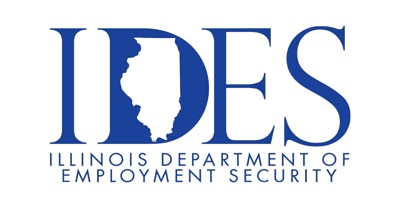|

Pritzker Relies on Budget Gimmicks and Back Door Tax Hikes on Businesses to Fund FY22 Budget
On Wednesday, Gov. Pritzker presented his Fiscal Year 2022 budget blueprint in a pre-recorded speech delivered from a new vaccine clinic at the Illinois State Fairgrounds in Springfield. The Pritzker budget calls for $41.6 billion in spending and ignores a Constitutional requirement that budgets be balanced according to existing revenue. Despite the Constitutional mandate, Gov. Pritzker is relying on $1.5 billion in funds that do not statutorily exist today.
The Governor generates this additional revenue by diverting money earmarked for local municipalities, and statewide road and infrastructure improvements to the state budget General Fund, and through a massive backdoor tax increase on Illinois businesses.
Pritzker wants to hold back 10 percent of the Local Distributive Government Funds (LGDF) that are owed to local municipalities across the state. These are funds generated at the local level through income taxes that move through the state and are channeled back to local communities for the delivery of local services. He also seeks to divert a portion of gasoline taxes and cigarette taxes—both earmarked for state infrastructure projects—to the budget’s General Fund.
But it is the Illinois business community that will be hit the hardest if the Pritzker revenue plan is approved. The Governor recommends walking back previously negotiated tax incentives that assist business and job creation, and eliminating the bipartisan-negotiated Blue Collar Jobs Act of 2019. The estimated hit to the business community is nearly $1 billion.

Health Committee Members Request Answers from IDPH on Vaccine Rollout
On Feb. 11, the Illinois Senate Health Committee met virtually for the first time to discuss Illinois’ ongoing vaccine rollout. However, much to the frustration of Republican members on the committee, Illinois Department of Public Health Director Ngozi Ezike had a schedule conflict and was unavailable to address many of the questions from Committee members.
After making a brief presentation and fielding approximately 15 minutes of questions, Dr. Ezike left the committee meeting.
“While I’m honored to have the opportunity to serve on this committee, our first meeting was very disappointing. Our state’s vaccination program is an extremely important subject and this should have been an opportunity to get to the bottom of issues plaguing the process," said Senator Bailey. "Instead, we were told that multiple officials, including IDPH Director Dr. Ezike, who left after just a few minutes of questions, were too busy and had very little time to answer questions. Unfortunately all we ended up with was the same lack of transparency that has become a hallmark of this administration’s COVID-19 response.”
With several lawmakers’ questions unanswered, Republican members of the Senate Health Committee issued a letter to Dr. Ezike on Feb. 16 asking her to address a few of their more pressing points of concern.
The letter requested answers to the following questions:
- While we are happy that the Governor has heeded our calls to expand Phase 1B vaccine eligibility to include individuals with comorbidities, underlying conditions, and disabilities, why must these vulnerable individuals wait until Feb. 25 to begin receiving the vaccine when inmates will begin to receive the vaccine on Feb. 15?
- Why has Illinois lagged so far behind other states of comparable size in the amount of people per capita that have received at least one dose?
- According to the Administration’s Restore Illinois plan, for Illinois to enter Phase 5, the following must be met: Either a vaccine must be developed to prevent additional spread of COVID-19, a treatment option is readily available that ensures health care capacity is no longer a concern, or there are no new cases over a sustained period. How do you define “readily available” and can you tell us what constitutes a “sustained period”?
- We are having trouble understanding the lack of information being made available to legislators, legislative staff and reporters trying to do their jobs. In the spirit of transparency, will IDPH commit to publishing additional data to the COVID-19 website regarding weekly vaccine allocation to local health departments (which is different from LHD inventory), the number and percentage of individuals receiving one vaccine shot, and the number of vaccine doses the state is holding in reserve?
- What information is being used to determine each local health department’s weekly allocation of vaccine doses and who is making the final decision?

Senate and House Republicans on JCAR Stand United Against Controversial ISBE Rule
On Wednesday morning, the Joint Committee on Administrative Rules (JCAR) heard a controversial rule promulgated by the Illinois State Board of Education (ISBE) for “Culturally Responsive Teaching and Leading Standards.” Unlike legislation that comes before the entire General Assembly for consideration, JCAR hears rules brought forward by agencies from the Governor’s administration. JCAR includes six Republicans and six Democrats, split equally between the Senate and the House. Eight of the Committee’s 12 votes are required to block a rule’s implementation.
Senate Republicans opposed the rule because it creates a burdensome, confusing, and indecipherable set of progressive ideas and buzzwords for educators in Illinois. Many felt the new rule would stifle healthy debate and the fostering of independent critical thinking skills, and would encourage teachers to steer teaching and learning toward specific political ideologies. Click here to learn more about the rule.
Although the three Senate Republicans and three House Republicans on JCAR stood together to oppose the ISBE rule, their six votes left them two votes shy of the requisite number of votes needed to block it. As written and approved, the new standards will take effect in 2025.

Senate Labor Committee Continues Hearing into Unemployment Insurance System Failings
This week the Senate Labor Committee continued gathering subject-matter testimony into failings at the Illinois Department of Employment Security (IDES). A hearing held last week focused primarily on Illinoisans’ ongoing struggle to receive benefits owed to them, unreasonable response times and the state’s desire to seek repayment of the overpayment of Pandemic Unemployment Assistance (PUA) to some small-business owners. This week, the Labor Committee heard from business and labor representatives about the struggles they have endured, and issues tied to the misclassification of workers seeking benefits.
|